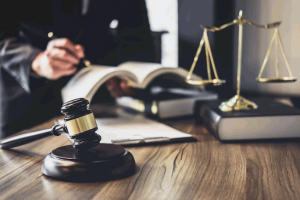We have set our feet in the digital age, and social media plays a pivotal role in our daily lives. We cannot pace ahead without social media platforms. Through the easy-turning routes of social media, we keep communicating, connecting, and sharing information in the blink of an eye. While the benefits of social media are abundant and undeniable, individuals and organizations must be aware of the legal implications associated with their usage.
One of the key legal concerns surrounding social media is privacy. Users must understand the privacy settings and policies of the platforms they use to safeguard their personal information. Additionally, sharing sensitive or confidential information on social media platforms can have serious legal consequences, such as breaches of privacy, defamation, or intellectual property infringement.
Defamation emerges as another legal issue within the realm of social media. Posting false or damaging statements about individuals or organizations can result in defamation claims. It is imperative to exercise caution and verify the accuracy of information before sharing it online.
Defamation on Social Media in India
With the rapid growth of Social Media in India, the issue of defamation has become a significant concern in India. Defamation refers to the act of making false statements that harm the reputation of an individual or an organization. The ease of sharing information on social media platforms has led to an increase in instances where false and damaging statements are circulated, causing harm and having legal consequences.
The digital landscape poses unique challenges when it comes to addressing defamation on social media. The speed and reach of social media platforms can cause false information to spread rapidly, causing irreparable damage to a person’s reputation in a short amount of time.
Social media users in India need to be cautious about what they post and share. Verifying the accuracy of information before sharing it is crucial to avoid inadvertently spreading false and defamatory content. Additionally, understanding the consequences of defamation on social media is vital to prevent legal consequences
Individuals who believe they have been defamed on social media platforms can seek legal recourse by filing a complaint with the police or approaching the court. It is advisable to consult with legal experts who specialize in cyber laws to navigate complex legal procedures.

Users need to exercise caution, verify information before sharing, and understand the legal consequences of defamatory statements. By promoting responsible online behaviour, we can contribute to a safer and more respectful digital environment while preserving the rights and reputations of individuals and organizations.
Online Defamation Cases in India
The rapid growth of the internet and social media has brought about a surge in online defamation cases globally, and India is not an exception to this phenomenon. The widespread use of digital platforms has made it effortless to propagate information, but it has also given rise to instances of online defamation, presenting significant challenges to individuals and businesses alike. Here, we delve into the landscape of online defamation cases in India, analyzing crucial legal aspects, notable judgements, and the impact of such cases on freedom of speech and expression.
-
Legal Framework for Online Defamation in India:
The Information Technology Act, of 2000 and the Indian Penal Code typically govern online defamation cases in India. The Supreme Court declared in 2015 that Section 66A of the Information Technology Act, which dealt with offensive online communication, was unconstitutional. However, provisions under Sections 499 and 500 of the Indian Penal Code, which deal with defamation, continue to be relevant in online contexts.
-
Notable Online Defamation Cases in India:
- a) Shreya Singhal v. Union of India: This landmark case challenged the constitutionality of Section 66A of the Information Technology Act. The Supreme Court’s decision struck down the provision, stating that it violated the fundamental right to freedom of speech and expression.
- c) Tata Sons v. Cyrus Mistry: This well-known case involved defamation claims made by both parties in online media. The case highlighted the challenges of defamation in the corporate context and the role of social media platforms in spreading defamatory content.
-
Challenges and Implications in Online Defamation Cases:
Determining jurisdiction in online defamation cases can be complex due to the borderless nature of the internet. Courts have grappled with issues related to the physical location of the offender, the place of publication, and the targeted audience.
Online defamation cases raise questions about striking the right balance between the right to freedom of speech and expression and the right to protect one’s reputation. Courts must navigate between safeguarding these competing interests while ensuring that freedom of speech is not unduly curtailed.
Online defamation cases in India present significant legal challenges and implications for individuals, businesses, and online platforms. Balancing competing rights, clarifying legal frameworks, and promoting responsible online behaviour are key steps towards addressing these challenges and fostering a safer digital environment.
Internet privacy
In today’s digital age, where our lives are increasingly intertwined with the internet, ensuring privacy has become a paramount concern. It involves controlling what information is collected, how it is used, and who has access to it.
To maintain internet privacy, we should initiate the following measures:
- Secure Communication: We should ensure that your online interactions are protected from eavesdropping and unauthorized access.
- Strong Passwords: Employing strong, unique passwords for each online account helps prevent unauthorized access and potential data breaches.
- Privacy Settings: Regularly reviewing and adjusting privacy settings on social media platforms, online services, and devices allows us to control the information shared and restrict access to our data.
- Minimizing Data Sharing: Limiting the information shared on public platforms and being cautious while sharing personal details online reduces the risk of data misuse.
A Degree in Law at the Best University for law in Sonepat:
SRM University Sonepat is a globally ranked 4-star university with a ‘Diamond’ rating by QS-IGAUGE India. It is the first Indian University powered by NASSCOM Future Skills. It has also earned the recognition of being the first University to have an academic Affiliate with IET in Haryana. Bagging 70-plus professional career programmes, SRM University Sonepat has become one of the leading educational institutions that offer a multitude of growth possibilities.
SRM University Sonepat offers the following course programs in law:
- PhD – Law
- LL.M
- B.B.A.LL.B (Hons.)
- LL.B (Hons.)
Apart from the aforementioned Law programmes, a wide range of UG, PG, and PhD-level courses such as BTech, MTech, BA, MBA, LLB, and PhD are also offered at the best university for law in Sonepat. The detailed information is mentioned below:
B.B.A. (Duration: 3 years)
B.B.A. with specialization in Business Analytics (in association with IBM) (Duration 3 years)
M.B.A. (Duration: 2 years)
M.B.A. – Big Data Analytic (Duration: 2 years)
M.B.A. – Artificial Intelligence & Machine Learning (Duration: 2 years)
B.E. / B.TECH (18 Courses)
M.E. / M.TECH (4 Courses)
MCS (Biotechnology)
PhD (17 Courses)
B.SC (8 Courses)
BCA (1 course)
B.A. (4 Courses)
M.A. (1 course)
M.SC (6 Courses)
- COM (1 course)
- COM (1 course)
Certificate Course
SRM University Sonepat has a strong network of industry partners such as Siemens, TCS, Xebia, NASSCOM, Futureskills, and Reliance Jio Infocomm Limited that regularly recruit students for internships and job opportunities. This provides students at the best university for law in Sonepat with practical experience and exposure to the corporate world.






